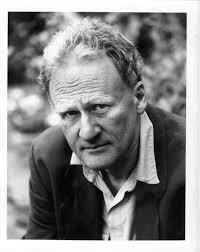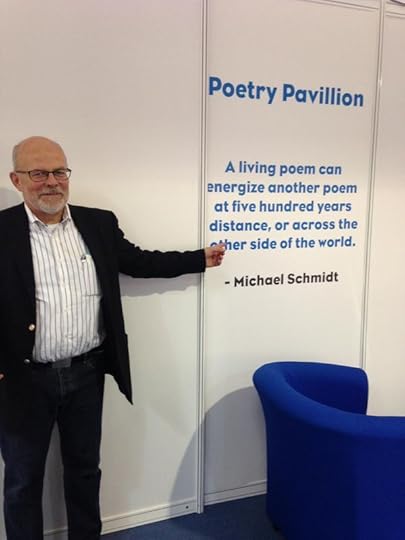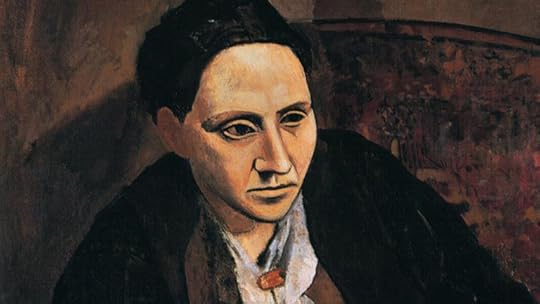María Castro Domínguez's Blog, page 7
April 18, 2015
What you think – it’s spring!
The Laughing Receptionist in the GP’s Surgery by Paul Durcan
 When I nip into the GP’s surgery
When I nip into the GP’s surgeryTo pick up a repeat prescription
For anti-depressants and sleeping pills
I find the fair-haired receptionist
On her elbows with laughter,
For no reason other than that this April day
Is all sunlight and blue skies,
Street lined with limes of new green leaf,
Tiny gardens jungles of white magnolia.
She announces: “Today is the day
For buying a villa on the seafront:
I know I must win the Lottery –
But how can I win the Lottery
When I do not even remember
To buy a Lottery ticket?
And even then, in any case,
I forget to check the results!”
She is weeping with laughter.
I wade out into the street
And not caring if YOU are watching me
I pluck a blue tulip from a front garden,
Wade back in and present it to her.
I, too, am weeping with laughter
As I let myself out of the surgery and –
Dear Mrs Double Parking – I do not give a farthing
What you think – it’s spring!
From The Days of Surprise by Paul Durcan
Durcan was born and grew up in Dublin and in Turlough, County Mayo.
Durcan's main published collections include: A Snail in my Prime, Crazy About Women, Greetings to Our Friends in Brazil and Cries of an Irish Caveman.
Published on April 18, 2015 09:37
April 15, 2015
Charles Baudelaire's Fleurs du mal, L'Albatros
 Charles Baudelaire's poem L'Albatros represents that bird, the Albatross, as a poet, I feel, "Le Poète est semblable au prince des nuées". I have always shared an affinity and fascination with birds.Simon Armitages says about this poem," it has a thumping confidence in its assertion that bird and poet are of the same species".
Charles Baudelaire's poem L'Albatros represents that bird, the Albatross, as a poet, I feel, "Le Poète est semblable au prince des nuées". I have always shared an affinity and fascination with birds.Simon Armitages says about this poem," it has a thumping confidence in its assertion that bird and poet are of the same species".Tim Dee writes. "Birdwatchers don't necessarily make good poets but the best bird poems are steeped in observation and detail which promote their authors to among the very best watchers of birds. Since the beginnings of English poetry poets have been drawn to birds. The fleeting bewitching quality of birds' flight and song have been mainstays of poetry ever since. And despite depleted numbers and the loss of house sparrows and cuckoos and many other species, birds continue to populate poetry in a noisy and colourful conversation with the wild. Long may they do so."
The Albatross
Often, to amuse themselves, the men of the crew
Catch those great birds of the seas, the albatrosses,
lazy companions of the voyage, who follow
The ship that slips through bitter gulfs.
Hardly have they put them on the deck,
Than these kings of the skies, awkward and ashamed,
Piteously let their great white wings
Draggle like oars beside them.
This winged traveler, how weak he becomes and slack!
He who of late was so beautiful, how comical and ugly!
Someone teases his beak with a branding iron,
Another mimics, limping, the crippled flyer!
The Poet is like the prince of the clouds,
Haunting the tempest and laughing at the archer;
Exiled on earth amongst the shouting people,
His giant's wings hinder him from walking.
— Geoffrey Wagner, Selected Poems of Charles Baudelaire (NY: Grove Press, 1974)
L'Albatros
Souvent, pour s'amuser, les hommes d'équipage
Prennent des albatros, vastes oiseaux des mers,
Qui suivent, indolents compagnons de voyage,
Le navire glissant sur les gouffres amers.
À peine les ont-ils déposés sur les planches,
Que ces rois de l'azur, maladroits et honteux,
Laissent piteusement leurs grandes ailes blanches
Comme des avirons traîner à côté d'eux.
Ce voyageur ailé, comme il est gauche et veule!
Lui, naguère si beau, qu'il est comique et laid!
L'un agace son bec avec un brûle-gueule,
L'autre mime, en boitant, l'infirme qui volait!
Le Poète est semblable au prince des nuées
Qui hante la tempête et se rit de l'archer;
Exilé sur le sol au milieu des huées,
Ses ailes de géant l'empêchent de marcher.
— Charles Baudelaire
Published on April 15, 2015 06:55
April 14, 2015
Michael Schmidt "A living poem can energize another poem at five hundred years’ distance...."
‘I like the way that poems connect with one another and weave a larger pattern.
 A living poem can energize another poem at five hundred years’ distance, or across the other side of the world’, writes Michael Schmidt at the conclusion ofLives of the Poets (1998), his compendious critical-historical survey of poetry in English. Indeed, a strong sense of internationalism and cultural ‘connectedness’ distinguishes his tastes as a literary critic, publisher, and poet. Schmidt modestly refers to himself in Lives of the Poets as ‘an Anglophone Mexican publisher’, but since coming to Britain as a student at Oxford and founding Carcanet Press in 1969, his manifold activities have amounted to an indefatigable contribution to British literary life. He is fond of quoting Octavio Paz’s dictum that ‘a writer’s nationality is his language’, and Schmidt continues to be a great advocate for poetry in all its forms (except the most populist), as well as being an astringent critical teacher and prolific anthologist, bringing and explaining poetry to what he once called Carcanet’s ‘commanding officer, the curious, responsive and devoted General Reader’. As a poet, he has produced a considerable body of work over the years, culminating in a fine volume of Selected Poems 1972-1997 (1997).
A living poem can energize another poem at five hundred years’ distance, or across the other side of the world’, writes Michael Schmidt at the conclusion ofLives of the Poets (1998), his compendious critical-historical survey of poetry in English. Indeed, a strong sense of internationalism and cultural ‘connectedness’ distinguishes his tastes as a literary critic, publisher, and poet. Schmidt modestly refers to himself in Lives of the Poets as ‘an Anglophone Mexican publisher’, but since coming to Britain as a student at Oxford and founding Carcanet Press in 1969, his manifold activities have amounted to an indefatigable contribution to British literary life. He is fond of quoting Octavio Paz’s dictum that ‘a writer’s nationality is his language’, and Schmidt continues to be a great advocate for poetry in all its forms (except the most populist), as well as being an astringent critical teacher and prolific anthologist, bringing and explaining poetry to what he once called Carcanet’s ‘commanding officer, the curious, responsive and devoted General Reader’. As a poet, he has produced a considerable body of work over the years, culminating in a fine volume of Selected Poems 1972-1997 (1997).
 A living poem can energize another poem at five hundred years’ distance, or across the other side of the world’, writes Michael Schmidt at the conclusion ofLives of the Poets (1998), his compendious critical-historical survey of poetry in English. Indeed, a strong sense of internationalism and cultural ‘connectedness’ distinguishes his tastes as a literary critic, publisher, and poet. Schmidt modestly refers to himself in Lives of the Poets as ‘an Anglophone Mexican publisher’, but since coming to Britain as a student at Oxford and founding Carcanet Press in 1969, his manifold activities have amounted to an indefatigable contribution to British literary life. He is fond of quoting Octavio Paz’s dictum that ‘a writer’s nationality is his language’, and Schmidt continues to be a great advocate for poetry in all its forms (except the most populist), as well as being an astringent critical teacher and prolific anthologist, bringing and explaining poetry to what he once called Carcanet’s ‘commanding officer, the curious, responsive and devoted General Reader’. As a poet, he has produced a considerable body of work over the years, culminating in a fine volume of Selected Poems 1972-1997 (1997).
A living poem can energize another poem at five hundred years’ distance, or across the other side of the world’, writes Michael Schmidt at the conclusion ofLives of the Poets (1998), his compendious critical-historical survey of poetry in English. Indeed, a strong sense of internationalism and cultural ‘connectedness’ distinguishes his tastes as a literary critic, publisher, and poet. Schmidt modestly refers to himself in Lives of the Poets as ‘an Anglophone Mexican publisher’, but since coming to Britain as a student at Oxford and founding Carcanet Press in 1969, his manifold activities have amounted to an indefatigable contribution to British literary life. He is fond of quoting Octavio Paz’s dictum that ‘a writer’s nationality is his language’, and Schmidt continues to be a great advocate for poetry in all its forms (except the most populist), as well as being an astringent critical teacher and prolific anthologist, bringing and explaining poetry to what he once called Carcanet’s ‘commanding officer, the curious, responsive and devoted General Reader’. As a poet, he has produced a considerable body of work over the years, culminating in a fine volume of Selected Poems 1972-1997 (1997).
Published on April 14, 2015 11:22
April 8, 2015
Gertrude Stein reads If I Had Told Him a Completed Portrait of Picasso
Gertrude Stein reads If I Had Told Him a Completed Portrait of PicassoFrom the time she moved to France in 1903 until her death in Neuilly-sur-Seine in 1946, American writer Gertrude Stein was a central figure in the Parisian art world. An advocate of the avant garde, Stein helped shape an artistic movement that demanded a novel form of expression and a conscious break with the past Her nonlinear prose and poetry are like paintings, frozen in what she called a “continuous present.” As Jonathan Levin writes in the Barnes & Noble Classics edition of Stein’s Three Lives:
Stein clearly takes pleasure in words, almost in a way that a seven-year-old might, endlessly repeating a word, and variously inflecting it, to the point that it is effectively emptied of all meaning. Relying mostly on simple, often monosyllabic words, Stein wields language much as the modern painters she admired and collected were wielding paint, suggesting form through a radically simplified use of line and color….By combining and repeating such simple words and phrases, Stein helped reinvent the English language for the twentieth century. Much as Paul Cézanne, Henri Matisse, and Pablo Picasso helped people understand how the eye constructs its field of vision, so Stein helped readers understand how words construct a field of meaning.
Her nonlinear prose and poetry are like paintings, frozen in what she called a “continuous present.” As Jonathan Levin writes in the Barnes & Noble Classics edition of Stein’s Three Lives:
Stein clearly takes pleasure in words, almost in a way that a seven-year-old might, endlessly repeating a word, and variously inflecting it, to the point that it is effectively emptied of all meaning. Relying mostly on simple, often monosyllabic words, Stein wields language much as the modern painters she admired and collected were wielding paint, suggesting form through a radically simplified use of line and color….By combining and repeating such simple words and phrases, Stein helped reinvent the English language for the twentieth century. Much as Paul Cézanne, Henri Matisse, and Pablo Picasso helped people understand how the eye constructs its field of vision, so Stein helped readers understand how words construct a field of meaning.
 Her nonlinear prose and poetry are like paintings, frozen in what she called a “continuous present.” As Jonathan Levin writes in the Barnes & Noble Classics edition of Stein’s Three Lives:
Stein clearly takes pleasure in words, almost in a way that a seven-year-old might, endlessly repeating a word, and variously inflecting it, to the point that it is effectively emptied of all meaning. Relying mostly on simple, often monosyllabic words, Stein wields language much as the modern painters she admired and collected were wielding paint, suggesting form through a radically simplified use of line and color….By combining and repeating such simple words and phrases, Stein helped reinvent the English language for the twentieth century. Much as Paul Cézanne, Henri Matisse, and Pablo Picasso helped people understand how the eye constructs its field of vision, so Stein helped readers understand how words construct a field of meaning.
Her nonlinear prose and poetry are like paintings, frozen in what she called a “continuous present.” As Jonathan Levin writes in the Barnes & Noble Classics edition of Stein’s Three Lives:
Stein clearly takes pleasure in words, almost in a way that a seven-year-old might, endlessly repeating a word, and variously inflecting it, to the point that it is effectively emptied of all meaning. Relying mostly on simple, often monosyllabic words, Stein wields language much as the modern painters she admired and collected were wielding paint, suggesting form through a radically simplified use of line and color….By combining and repeating such simple words and phrases, Stein helped reinvent the English language for the twentieth century. Much as Paul Cézanne, Henri Matisse, and Pablo Picasso helped people understand how the eye constructs its field of vision, so Stein helped readers understand how words construct a field of meaning.
Published on April 08, 2015 04:32
April 7, 2015
Roger Philip Dennis Winner of this year’s Poetry Society’s National Poetry Competition
The Saturday poem: Corkscrew Hill Photo

by Roger Philip Dennis Winner of this year’s Poetry Society’s National Poetry Competition
All afternoon she counts the soundsuntil the fly-specked room crackles with silence. Even the song thrush noteless. A thick drizzle trickles rivulets down the window pane,smears distance on fields, curtains-off hillsand greens the sagged thatch,aches in the creaking gate and screwswatering eye to misting glass:a hearse skids slowly up the muddy lane,blurs in droplets on a spider-web,spins sideways into darkness ...
Roger Philip Dennis is an artist and tutor running painting workshops from his studio in Devon. He has enjoyed writing since appearing in his school magazine at the age of nine. He grew up in the New Forest, and went to St Andrews for an MA in Philosophy, where he co-founded, produced and illustrated the literary magazine “Entry” [1969-73.] Craft textiles, archaeological reconstructions, abstract paintings, and topographical views of Fife and Somerset prompted studying “Art and Design in a Social Context” at Dartington College. A 1985 Arvon Foundation Apprenticeship-Scheme for a novel led to work editing. He continues writing fiction alongside poetry.
Published on April 07, 2015 06:57
April 3, 2015
Poetry by Jacobo Valcárcel
Gran poeta Jacobo Valcárcel Aquí tienen uno de sus poemas publicados en el blog de Manuel Díaz Martínez
A Los 26 Años de Edad
 Viejo
ViejoReflexivo
La juventud ya pasó…Sumido entre pozos
entre mares y acantilados
la verdad parecía pérfida
el carmín breve
Y las flores marchitas
engullen el terco pasado
que introducen las marismas.En una poltrona
Caen los meses, los años
la inerte paciencia
y los solitarios años.Ya, cansado y viejo
pido al silencio
que me petrifique
Y me ahogue en
el susurro
de la inmensidad.♣Manuel Díaz Martínez (Santa Clara, Cuba, 1936). Poeta y periodista. Fue primer secretario y consejero cultural de la embajada de Cuba en Bulgaria, investigador del Instituto de Literatura y Lingüística de la Academia de Ciencias de Cuba, redactor-jefe del suplemento culturalHoy Domingo (del diario habanero Noticias de Hoy) y de La Gaceta de Cuba (de la Unión de Escritores y Artistas de su país natal). Fue director de la revista Encuentro de la Cultura Cubana y pertenece al consejo editorial de la Revista Hispano Cubana, editada en Madrid. Ha publicado catorce libros de poemas, el último de los cuales es Paso a nivel (Madrid, Editorial Verbum, 2005). En su antología Un caracol en su camino (Cádiz, Editorial Aduana Vieja, 2005) recoge gran parte de su obra poética. Una selección de sus poemas fue publicada en 2001, en edición bilingüe (traducción de Giuseppe Bellini), por la editorial Bulzoni, de Roma.
Published on April 03, 2015 05:44



